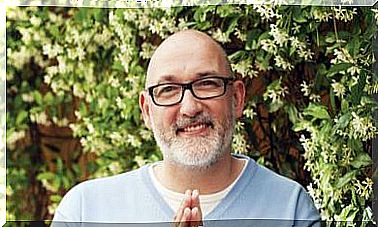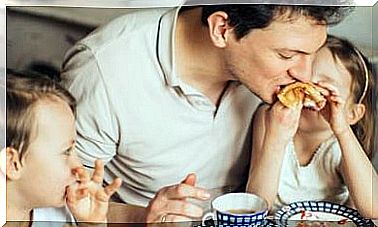Love From Parents To Children (and Vice Versa)
When parents get older, our relationship is often stained with resentment, guilt or exhaustion. We are all adults and it is time to reformulate the rules: now care and advice come and go out of love, not out of obligation.

Being parents involves three different aspects: the decision to be one, unconditional love for children and the task of caring for them. Of those three things, the first two last a lifetime. The role does not change: my children will always be my children and I, their father (even if at some point I no longer have to teach them, even if they are the ones who lead me by the arm). Nor will the unconditional love of parents for their children (and not vice versa) will never end.
The task of parents, however, that of caring, providing and educating, does indeed have an end. In a simple way, we could say that this task ends when the children become adults.
7 tips for relating to our parents when we are adults
And when is the child considered to be an adult? This is, logically, the question that follows. Well, essentially: when it no longer depends on others.
This independence, of course, is not only economic. It also includes being able to make their own decisions, not needing constant approval and knowing how to take care of themselves. Once the children manage to assume and carry out all these functions that their parents previously fulfilled, their task is over. At this point, they can and should step aside.
1. Giving is not an obligation, it is a choice
The fact that their homework is finished does not mean that parents cannot advise or help their children in the way that they both wish … What it means is that it is not the obligation of parents to do so (it was when they were young) and that children no longer need it.
They can receive help and also, of course, recognition, and all this can be rewarding and welcome, but (and this is the key) they could also not receive it and their well-being should not depend on it. This creates a very interesting situation in which parents give everything they give by choice.
2. Give your opinion, but from love
Adult children are often confused by their parents’ insistence on having an opinion on their lives. The most emblematic case is that of the grandmother who points out to her daughter, a new mother, how she should take care of the newborn.
Daughters usually demand that grandmothers not interfere, while grandmothers protest because their daughter refuses to listen to them …
It seems to me that in this model a wisdom that can be valuable is lost. What older parents have to contribute can be heard by their children if both are clear that it is not an imposition. That when they say they are not based on authority but on love.
3. Close old wounds
When parents get older and children are adults, it is usually a good time to address issues, from children to parents, that were left pending. Old grudges, unanswered questions, wounds that have not yet healed …
The maturity of the children often brings new perspectives and allows us to pose these issues in a different way. And on the part of parents, perhaps today they can also be willing to acknowledge mistakes or understand the pain they caused, even though their intention was good.
4. Without blame or reproach
The final stage, this moment of maturity of parents and children, many times already coincides with the process of decline of the parents. Physical or mental decline (or sometimes both) becomes hard to bear. The demand for attention, time, care and money is enormous and growing. Many times this ends up generating an overload in the children, who suffer it doubly, because in addition to coping with this difficult situation, the weight of guilt and self-blame is added. Is there a way that parents in their decline and the children who care for them suffer as little as possible? Yes, you have to find the formula, the balance.
5. Don’t reverse the roles
Around parental care, there is a highly harmful idea that we could call the role reversal myth: “Now our parents have become our children and we must take care of them as they took care of us.” This is a fallacy and a mistake. That older parents need care does not equate them to being children and, if we treat them that way, and we go around scolding them like little rebels, surely we will not do well. The attention that older parents require should be modeled for the occasion, not crudely copied from that lavished on us as children.
6. Caring without being in debt
The idea that “just as they took care of us, now we have to take care of them” may be very noble, but it has the problem that it is established as an exchange. “You gave me that, so now I owe you this.” This leads, inevitably, to think that caring for them in old age is an obligation that we must fulfill. And, in general, obligations are not carried out with very good will. It would be desirable that we take care of them out of love, not guilt. We must get rid of the idea that we have a debt to pay.
7. Check your limits and ask for help
Considering being indebted is what sometimes causes children to go beyond their own limits to care for their parents. Sad to say, this leads to exhaustion and also a build-up of resentment. Where is this limit then? Well, at the point where the caregiver feels that their own life is being relegated. When these limits are reached, it is important to consider the need for external help, often professional, in order to keep our love intact and continue to accompany and provide the only thing that can be offered in the face of the inevitable: comfort.









